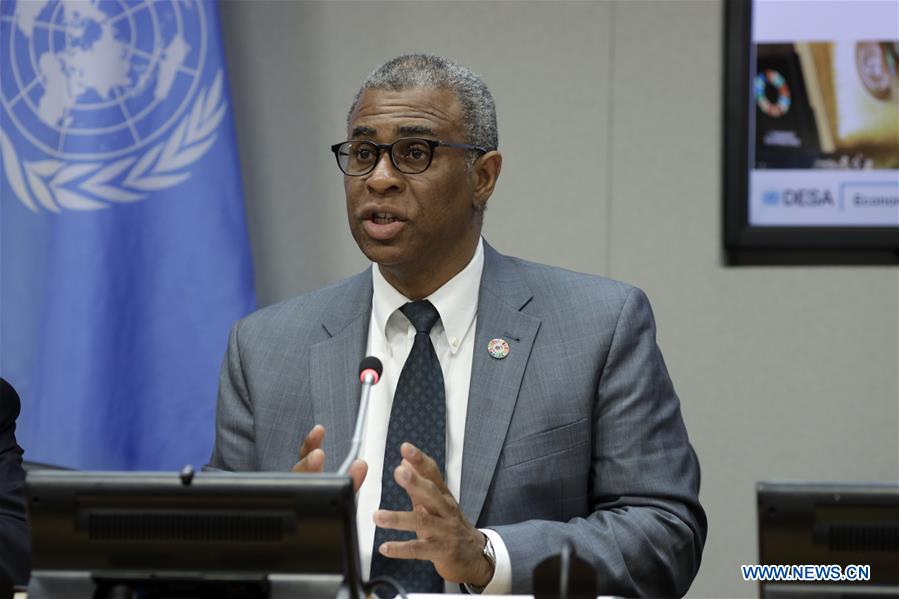UN lowers economic growth forecasts amid high trade tensions, policy uncertainty
 0 Comment(s)
0 Comment(s) Print
Print E-mail Xinhua, May 22, 2019
E-mail Xinhua, May 22, 2019

The United Nations (UN) on Tuesday cut its predictions for global economic growth in 2019 and 2020 due to unresolved trade tensions, high international policy uncertainty and softening business confidence.
In its mid-year World Economic Situation and Prospects report, the United Nations said that following an expansion of 3.0 percent in 2018, world gross product growth is now projected to moderate to 2.7 percent in 2019 and 2.9 percent in 2020, reflecting a downward revision of the forecasts released in January.
The growth outlook in all major developed economies and most developing regions has weakened due to a confluence of both domestic and external factors, according to the report.
The report identified several downside risks that could trigger a sharper or more prolonged growth slowdown in the world economy, potentially inflicting significant damage on development progress.
These risks include a further escalation in trade tensions, a sudden deterioration in financial conditions and accelerating effects of climate change.
Amid unresolved trade disputes and higher tariffs, the projected growth of world trade has been revised downwards to 2.7 percent in 2019 in the report, slowing markedly from 3.4 percent in 2018.
A more protracted period of weak international trade activity could also harm investment prospects and adversely affect productivity growth in the medium term, said the report.
The report also noticed that in response to slowing growth and subdued inflation, major central banks in the world have eased their monetary policy stances. These recent monetary policy shifts have helped stabilize global financial markets and capital flows to emerging economies.
Dawn Holland, chief of Global Economic Monitoring Branch at the UN Department of Economic and Social Affairs, is concerned about wage pressures due to the trade tensions. "In the countries where the unemployment rates were extremely low, which includes the United States, now we have seen some labor market pressures and labor shortages emerging."
"More comprehensive and well-targeted policy responses are needed to tackle the current growth slowdown," said Elliot Harris, UN chief economist and assistant secretary-general for economic development.
It is increasingly clear that policies to promote sustainable development will need to look beyond GDP growth and identify new and more robust measures of economic performance that appropriately reflect the costs of inequality, insecurity and climate change, Harris said.






Go to Forum >>0 Comment(s)